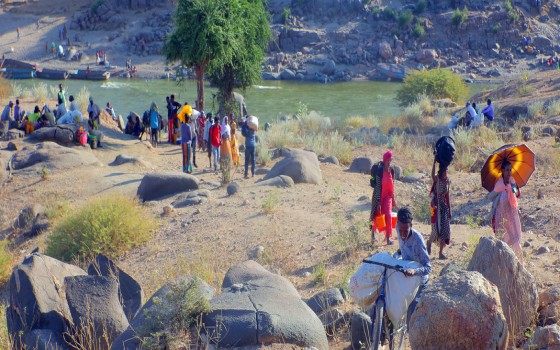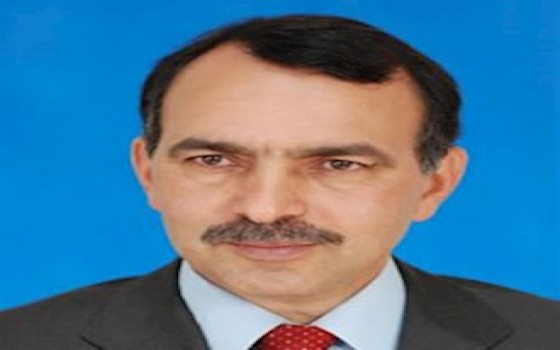
The Anthropocene: Humans Are Changing the Planet. Prepared by Dr. Abdel Moneim Sedky, Professor at the Research Center - Egypt

- Europe and Arabs
- Friday , 27 June 2025 11:37 AM GMT
The term "Anthropocene" refers to a new period of time during which human activities are believed to have had a greater impact on the planet than natural processes, whether at the environmental, climate, or geology levels. This concept, which has not yet been formally recognized within the geological timescale, emerged from a growing scientific realization that humans are no longer merely an element within the ecosystem, but a force capable of reshaping the entire planet.
The term's roots date back to the 1990s, but it gained widespread scientific popularity after the Dutch chemist Paul Crutzen adopted it. Crutzen proposed that human impacts since the Industrial Revolution, and especially after World War II, deserved a separate chronological classification. He suggested that the use of fossil fuels, population growth, and industrial and agricultural activities all contributed to accelerating environmental change. The year 1950 was proposed as the symbolic beginning of the Anthropocene epoch due to the so-called "Great Acceleration," a term referring to the unprecedented surge in human activity since the mid-20th century.
These impacts are manifested in several serious environmental manifestations. The first is climate change resulting from the accumulation of greenhouse gases in the atmosphere, leading to rising temperatures, melting polar ice, rising sea levels, and an increase in extreme weather events. This is compounded by the accelerating mass extinction of species, with the Earth recording rates of species disappearing hundreds of times the natural average as a result of habitat destruction, pollution, and climate change. Pollution in all its forms—from air and water to soil and seas—has become a defining feature of this era, especially with the widespread use of plastics and industrial chemicals, which have even left traces in sedimentary layers.
Despite these indicators, the debate continues over whether this era should be defined as a single starting point, or whether it should be considered a cumulative process that began with ancient agriculture and gradually evolved. Some researchers believe that reducing the Anthropocene to geological markers such as nuclear fallout oversimplifies the issue and overlooks the social, cultural, and economic interactions that led to the current environmental situation.
What about environmental justice, the disparity between rich and poor countries, and historical responsibility for environmental degradation? Major industrialized countries are responsible for the largest share of emissions, while developing countries bear the brunt of the impacts, despite their limited role in causing them. Furthermore, the least fortunate groups in societies are often the most affected by environmental disasters, reflecting a growing trend of environmental inequality.
In light of these facts, the Anthropocene represents a pivotal moment in human history, requiring humans to rethink their role and place within the ecosystem. The challenges posed cannot be solved solely through scientific or technological innovation; they require a cultural and ethical shift in the way societies relate to nature. Recognizing that we live in the Anthropocene is not a call for panic, but rather an urgent call to assume responsibility and pursue more just and sustainable development models that ensure the survival of both people and the planet.












No Comments Found